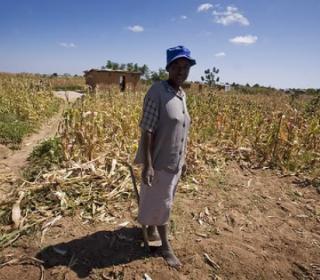New Alliance Ties Food Security to Improved Land Governance
The G8’s New Alliance for Food Security and Nutrition aims to lift 50 million people out of poverty in ten years through a partnership between G8 members, African nations and the private sector. In order to increase production at a rate needed to achieve food security, the New Alliance seeks to accelerate responsible investment in African agriculture and commit to coordinated policy reforms.


